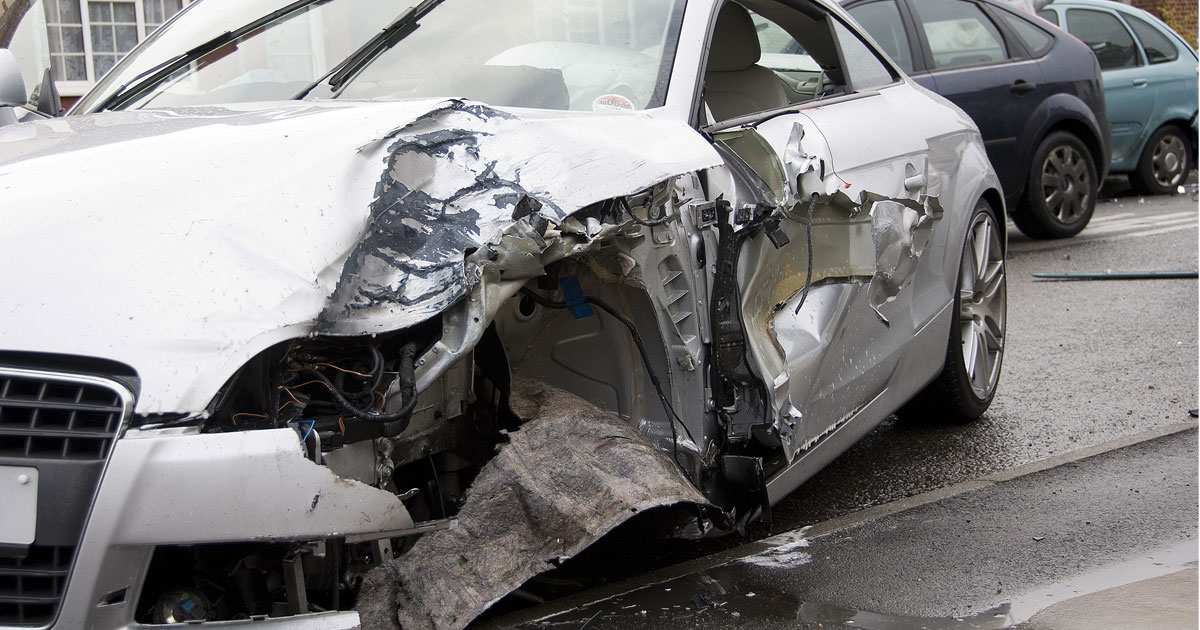Are Damages Recoverable After a Fatal Car Accident?

Despite all the advances in automobile safety that have been implemented in recent years, car accidents are still an unfortunate part of modern life. A fatal car accident is a terrible part of life and when someone dies in a vehicle accident, their loved ones may be at a loss about how to move forward. Beyond the heartache of a tragic loss, families often face financial uncertainty when the deceased was an income provider.
Fortunately, there is some recourse for dependents. If a driver’s negligence caused a fatal accident, the deceased’s family could seek compensation for their losses through a wrongful death claim.
In a legal context, individuals injured by another party’s negligence may have grounds to bring a personal injury claim and pursue financial compensation for their losses. That is true for motor vehicle accidents that result in injuries and property damage.
When a person passes away in an accident due to negligence, the claim becomes a wrongful death lawsuit. A wrongful death suit can be filed if someone recklessly, wrongfully, or intentionally causes another person’s death.
In cases of extreme recklessness, such as drunk driving, there may be criminal proceedings. However, wrongful death is a civil action brought by the deceased’s family. Because the burden of proof in a wrongful death claim is lower, it can still win even if the related criminal case is unsuccessful.
Elements of a Wrongful Death Claim
In most jurisdictions, certain factors must exist for a wrongful death claim to proceed.
Fault
In the context of a motor vehicle accident, the law permits wrongful death claims in situations in which the defendant was at fault for the fatal accident. In the District of Columbia, if the plaintiff is to blame in any way, they cannot receive compensation.
Causation
Next, it must be shown that the person died directly from the motor vehicle collision. This is not always easy to prove, particularly if they died of a delayed-onset injury that developed a substantial amount of time after the initial accident. Car accident lawyers rely on medical records and enlist health care experts to clarify the person’s condition and show how and why the accident caused their death.
Damages
Finally, the plaintiff must show damages. In a wrongful death case, damages are relatively straightforward. They are classified in two ways: economic damages and non-economic damages.
Economic damages typically include lost future income, which is calculated based on the deceased’s estimated life expectancy and their professional skills, experience, and career history. Lawyers also factor in current property ownership, and savings and project how those assets would grow had the person lived to reach their estimated life expectancy.
Medical bills, including emergency care, surgery, and hospitalization costs for the person before their death may be compensable, as can burial and funeral costs.
Non-economic damages are not as easy to quantify, but they are no less important. These are the losses that occur when a beloved family member passes away. These are things such as companionship a deceased family member once provided to their family.
Punitive Damages
When the defendant engaged in behavior that was particularly reckless or egregious and that behavior resulted in the person’s death, punitive damages may also be awarded. Punitive damages are meant to punish the defendant and deter them and others from engaging in similar conduct in the future.
Who Can Sue for Wrongful Death?
Wrongful death claims are filed by a representative of the survivors who has suffered damages due to the decedent’s death. These individuals are referred to as the real parties in interest.
Depending on the deceased person’s home and family structure, real parties in interest might include:
- Spouses
- Children
- Parents of unmarried children
- Life partners
- Financial dependents
- Grandparents
- Siblings
A surviving spouse may have a claim for the loss of companionship the decedent once provided and the emotional trauma they live with as a result. Younger children can sue for damages for the support and comfort they will miss. When a minor child passes away, their parents may sue for emotional trauma and the loss of that relationship.
What Are Survival Actions?
There are cases in which the decedent does not pass away immediately after the car accident. A survival action is a legal claim that seeks to compensate the person for any suffering they experienced before their death.
Medical testimony is generally required in a survival action to prove the decedent lived after the accident and sustained conscious pain and suffering within a reasonable degree of medical certainty.
Like in a wrongful death suit, in most states, a representative of the decedent’s estate can bring a survival action claim. Some possible damages are also available in survival claims, including the loss of future income and benefits. Additionally, there may be compensation for pain and suffering endured between the time of the accident and resulting injuries and the person’s death.
It is never easy to deal with the premature death of a loved one, especially when it could have been prevented. If your family member died in a tragic car accident caused by another driver, you should seek legal counsel.
Washington DC Car Accident Lawyers at the Law Offices of Duane O. King Offers Compassionate Assistance After the Death of a Loved One
Our Washington DC car accident lawyers at the Law Offices of Duane O. King offer personal attention and service to every case. Call us at 202-331-1963 or contact us online for a free consultation. Located in Washington DC, Alexandria, Virginia, and National Harbor, Maryland, we work with clients in Prince George’s County, including Laurel, Beltsville, Adelphi, College Park, Greenbelt, Mitchellville, Woodmore, Greater Upper Marlboro, Springdale, Largo, Bowie, Capitol Heights, District Heights, Forestville, Suitland, Seat Pleasant, Clinton, Oxon Hill, Temple Hills, and Fort Washington.
